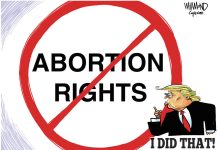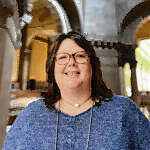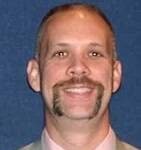From: R. Andrew Robertson
Columbus
I usually do not bother countering letters to the editor written in response to my own. An exception seems to be in order, though, for Edward Cherlin’s effort published Dec. 16, both for its errors and for the interesting considerations it inadvertently raises.
Cherlin’s most obvious mistake is his presumption that I believe mainstream Christians, as he calls them, to be fakes. He goes on to presume that I or my church is out to persecute, well, someone or other. He also thinks that I feel persecuted.
There is no basis for any of this in my letter. In fact, I am a mainline Protestant myself (to adopt the usual term). Specifically, I am a Presbyterian and have no doubt that my fellow churchgoers are genuine Christians. Neither I nor my church seeks to persecute anyone. Neither claims to be persecuted.
When Cherlin does turn to the substance of my letter, he simply dismisses it as meaningless without actually engaging any of it. There is no hint that he consulted the reference I gave for further insight into the subject of anti-religious bigotry, and specifically Christianophobia.
These two matters are interesting because they are addressed by sociologist George Yancey (coiner of the term Christianophobia) on the fastidiously nonpartisan website Patheos.com. In a recent series of blogs, Yancey addresses four myths about Christianophobia: that it does not exist; that it does exist and Christians deserve it; that it is nothing more than loss of privilege; that it equals persecution. Cherlin may not be interested, but open-minded readers will find there evenhanded treatments of these matters that are less than book-length, but more detailed than a letter to the editor can be. Yancey’s blogs are generally titled “Black, White and Gray.”
Cherlin would claim the mantle of First Amendment absolutist, supporting believers’ liberties in church services, publications and public utterances. Oddly, he does not assert their freedom to live out their beliefs in all aspects of their lives, as an absolutist surely would. Interesting again. The notion that Christians may express their beliefs in some situations, but not in all, is precisely that held by Christianophobes as identified by Yancey and his collaborator, David A. Williamson. In the end Cherlin simply does not give us enough information to judge where he truly stands on the spectrum of support for religious liberty.
Finally, Cherlin’s mirth at my allusion to George Orwell may be enhanced by the knowledge that I am a fan of that writer, with several of his volumes on my shelves. My understanding is that he did not create the term “Two Minutes Hate” in writing “1984.” Rather, he lifted it from the general usage of his time, in which it designated lockstep political calumny, whether officially directed or not. A strict insistence on using that expression only for government-inspired invective, then, would seem to be unwarranted literalism.
But that may be only a matter of taste, best left up to the individual. Just like religious expression.




